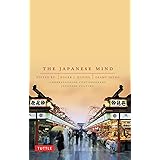| Digital List Price: | $36.99 |
| Kindle Price: | $24.99 Save $12.00 (32%) |
| Sold by: | Amazon.com Services LLC |
Your Memberships & Subscriptions

Download the free Kindle app and start reading Kindle books instantly on your smartphone, tablet, or computer - no Kindle device required.
Read instantly on your browser with Kindle for Web.
Using your mobile phone camera - scan the code below and download the Kindle app.

OK
The Invention of Religion in Japan Kindle Edition
- LanguageEnglish
- PublisherThe University of Chicago Press
- Publication dateOctober 3, 2012
- File size4178 KB
Customers who read this book also read
Editorial Reviews
Review
"Jason Ananda Josephson astutely analyzes how Japanese definitions of religion sought to contain Christian missionary agendas and to position Japan advantageously vis-à-vis Western nations while at the same time radically reconfiguring inherited traditions and articulating new ideological norms for Japanese citizens. His broad erudition allows him to place the case of Japan in transnational perspective and to offer persuasive theoretical insights into the mutually constitutive nature of religion, superstition, and the secular. This study is illuminating reading for anyone interested, not only in modern Japan, but in the complex interconnections of religion, modernity, and the politics of nation states." (Jacqueline Stone, Princeton University )
"Written with remarkable clarity, this book makes an excellent contribution to the study of the interface of traditional Japanese religions and politics. Highly recommended."- Choice
"The range of Japanese primary sources consulted in his book is prodigious, as is his familiarity and usage of multidisciplinary theoretical works. . . . Josephson's book is erudite, informative, and interesting. It should be a worthwhile read for Japan scholars as well as scholars and students interested in religious studies theory and history." Wilburn Hansen, H-Shukyo
About the Author
Product details
- ASIN : B009MBTR3O
- Publisher : The University of Chicago Press (October 3, 2012)
- Publication date : October 3, 2012
- Language : English
- File size : 4178 KB
- Text-to-Speech : Enabled
- Screen Reader : Supported
- Enhanced typesetting : Enabled
- X-Ray : Not Enabled
- Word Wise : Enabled
- Sticky notes : On Kindle Scribe
- Print length : 403 pages
- Best Sellers Rank: #390,343 in Kindle Store (See Top 100 in Kindle Store)
- #17 in Shintoism (Books)
- #150 in Religious Studies - Comparative Religion
- #166 in Asian & Asian Descent Studies
- Customer Reviews:
About the author

Jason Ānanda Josephson Storm is Professor of Religion and Chair of Science & Technology Studies at Williams College. He received his PhD from Stanford University, his MTS from Harvard University, and has held visiting positions at Princeton University, École Française d'Extrême-Orient, Paris, Ruhr Universität and Universität Leipzig, Germany. He is the author of "The Invention of Religion in Japan" (2012, winner of the Society for the Scientific Study of Religion- Distinguished Book of the Year Award), "The Myth of Disenchantment: Magic, Modernity and the Birth of the Human Sciences" (2017), and "Metamodernism: The Future of Theory" (2021), all published by the University of Chicago Press.
Customer reviews
Customer Reviews, including Product Star Ratings help customers to learn more about the product and decide whether it is the right product for them.
To calculate the overall star rating and percentage breakdown by star, we don’t use a simple average. Instead, our system considers things like how recent a review is and if the reviewer bought the item on Amazon. It also analyzed reviews to verify trustworthiness.
Learn more how customers reviews work on Amazon-
Top reviews
Top reviews from the United States
There was a problem filtering reviews right now. Please try again later.
Fair warning, though, this is not a popular-level history. It is academic. Share it with your friends, but share it with your *nerd* friends.
I recommend this book to anyone who is interested in religious studies, the history of Japan, or Japan in general.










